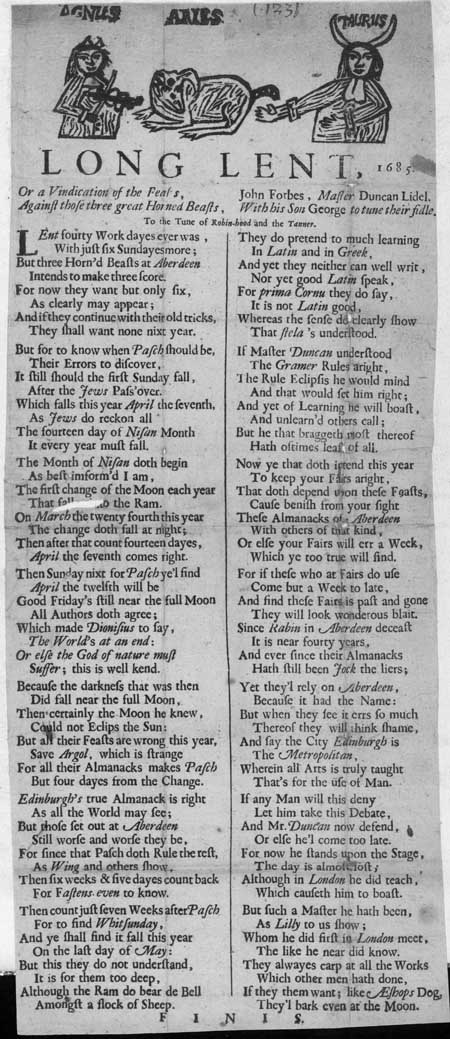Commentary
Verse 1: 'Lent fourty Work dayes ever was, / With just six Sundayes more; / But three Horn'd Beasts at Aberdeen / Intends to make three score. / For now they want but only fix, / As clearly may appear; / And if they continue with their old tricks, / They shall want none nixt year.' This should be sung 'To the tune of Robin Hood and the Tanner'. The 'three Horn'd Beasts' are named as 'John Forbes, Master Duncan Lidel, / With his sone George to tune their fidle.' This ballad appears to be part of a debate about the proper dates of religious fairs and festivals. The author mocks John Forbes, Duncan Lidel and George Lidel for wanting 'three score' days in Lent, and makes numerous references to the Jewish calendar to support his argument that the status quo is correct. There appears to be a regional element to this argument, the 'horn'd beasts' being scholars in Aberdeen while the author appears to favour Edinburgh. It is not known whether 'Lidel' here is any relation to the famous Aberdonain physician Duncan Liddel (1561-1613). Early ballads were dramatic or humorous narrative songs derived from folk culture that predated printing. Originally perpetuated by word of mouth, many ballads survive because they were recorded on broadsides. Musical notation was rarely printed, as tunes were usually established favourites. The term 'ballad' eventually applied more broadly to any kind of topical or popular verse.
View Transcription | Download PDF Facsimile
|
 |
Probable date of publication:
1685 shelfmark: Ry.III.a.10(032)
 View larger image
View larger image
|


